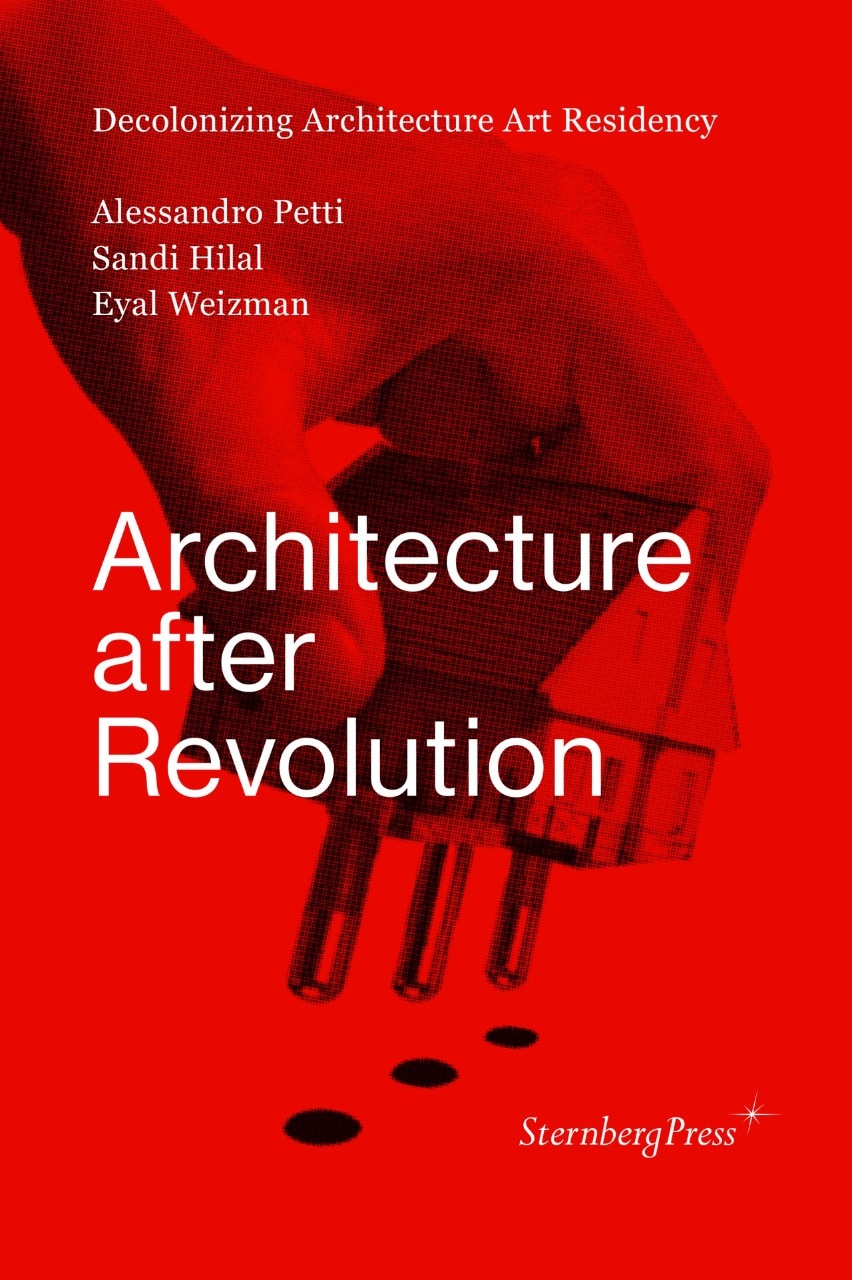The Funambulist by its Readers: Political Geographies from Chicago and Elsewhere (2019)
Filed under book | Tags: · architecture, chicago, city, geography, politics, space, urbanism

“Initiated in 2015 as a print and online magazine, The Funambulist does not understand architecture as the authored design of inhabitable sculptures, but rather as the discipline that organizes bodies in space. With such a perspective, we have attempted to detach ourselves from architecture as a discipline and have focused instead on formulating spatial approaches to anti-colonial, anti-racist, anti-capitalist, queer, trans, feminist, anti-ableist political struggles and that against which they fight.
For this book commissionned by the Chicago Architecture Biennial 2019, we have invited 20 regular readers (many of whom are also contributors) of The Funambulist to pick, among the many texts we published in our 22 first issues, the one that appeared to them as the most politically useful. We are republishing these texts here, as well as their introductions, written by these 20 guests.
In addition to this, we asked five Chicago-based activists to write about the spatial politics of their city in relation to settler colonialism, the municipality, the police, the real estate pressure, as well as the school system. At a crucial moment following the change of administration, this appeared to us as the most politically useful thing we could do to propagate the voices of those active on the ground.”
Edited by Léopold Lambert, et al.
Publisher The Funambulist, Paris, Sep 2019
Open access
ISBN 9782956935803
234 pages
PDF (34 MB)
Comment (0)Alessandro Petti, Sandi Hilal, Eyal Weizman: Architecture after Revolution: Decolonizing Architecture Art Residency (2013)
Filed under book | Tags: · architecture, decolonization, palestine, revolution

“The work presented in this book is an invitation to undertake an urgent architectural and political thought experiment: to rethink today’s struggles for justice and equality not only from the historical perspective of revolution, but also from that of a continued struggle for decolonization; consequently, to rethink the problem of political subjectivity not from the point of view of a Western conception of a liberal citizen but rather from that of the displaced and extraterritorial refugee. You will not find here descriptions of popular uprising, armed resistance, or political negotiations, despite these of course forming an integral and necessary part of any radical political transformation. Instead, the authors present a series of provocative projects that try to imagine “the morning after revolution.”
Located on the edge of the desert in the town of Beit Sahour in Palestine, the architectural collective Decolonizing Architecture Art Residency (DAAR) has since 2007 combined discourse, spatial intervention, collective learning, public meetings, and legal challenges to open an arena for speculating about the seemingly impossible: the actual transformation of Israel’s physical structures of domination. Against an architectural history of decolonization that sought to reuse colonial architecture for the same purpose for which it was originally built, DAAR sees opportunities in a set of playful propositions for the subversion, reuse, profanation, and recycling of these structures of domination and the legal infrastructures that sustain them.
DAAR’s projects should be understood as a series of architectural fables set in different locations: an abandoned military base near Beit Sahour, the refugee camp of Dheisheh in Bethlehem, the remnants of three houses on the Jaffa beach, the uncompleted Palestinian Parliament building, the historical village of Battir, the village of Miska destroyed during the Nakba, and the red-roofed West Bank colony of Jabel Tawil (P’sagot) next to Ramallah-El Bireh.”
Publisher Sternberg Press, Berlin, 2013
ISBN 9783943365795, 3943365794
205 pages
via authors
Review: Nick Axel (Domus, 2014).
Commentary: Stephanie Bailey (Ibraaz, 2014).
PDF (17 MB)
Comment (0)Sandi Hilal, Alessandro Petti: Permanent Temporariness (2018)
Filed under book, catalogue | Tags: · architecture, borders, commons, decolonization, exile, hospitality, palestine, participation, politics, refugees

“Since their first work, Stateless Nation at the Venice Biennial in 2003, and throughout their more recent architectural interventions in refugee camps, the artistic practice of Sandi Hilal and Alessandro Petti has explored and acted within and against the condition of permanent temporariness that permeates contemporary forms of life. In their ambitious research and project-based practice, art exhibitions are both sites of display and sites of action that spill over into other contexts: built architectural structures, the shaping of critical learning environments, interventions that challenge dominant collective narratives, the production of new political imaginations, the re-definition of words, and the formation of civic spaces.
This book is organized around fourteen concepts that activate seventeen different projects. Each project is the result of a larger process of collaboration and is accompanied by individual and collective texts and interviews that contextualize and expand the reach of every intervention.
Contributors to projects and texts include Maria Nadotti, Charles Esche, Robert Latham, Salwa Mikdadi, Eyal Weizman, Okwui Enwezor, Munir Fasheh, Grupo Contrafilé, Murad Odeh, and Rana Abughannam.”
Publisher Art and Theory Publishing, Stockholm, and Royal Institute of Art, Stockholm, 2018
ISBN 9789188031709, 9188031705
384 pages
via authors

